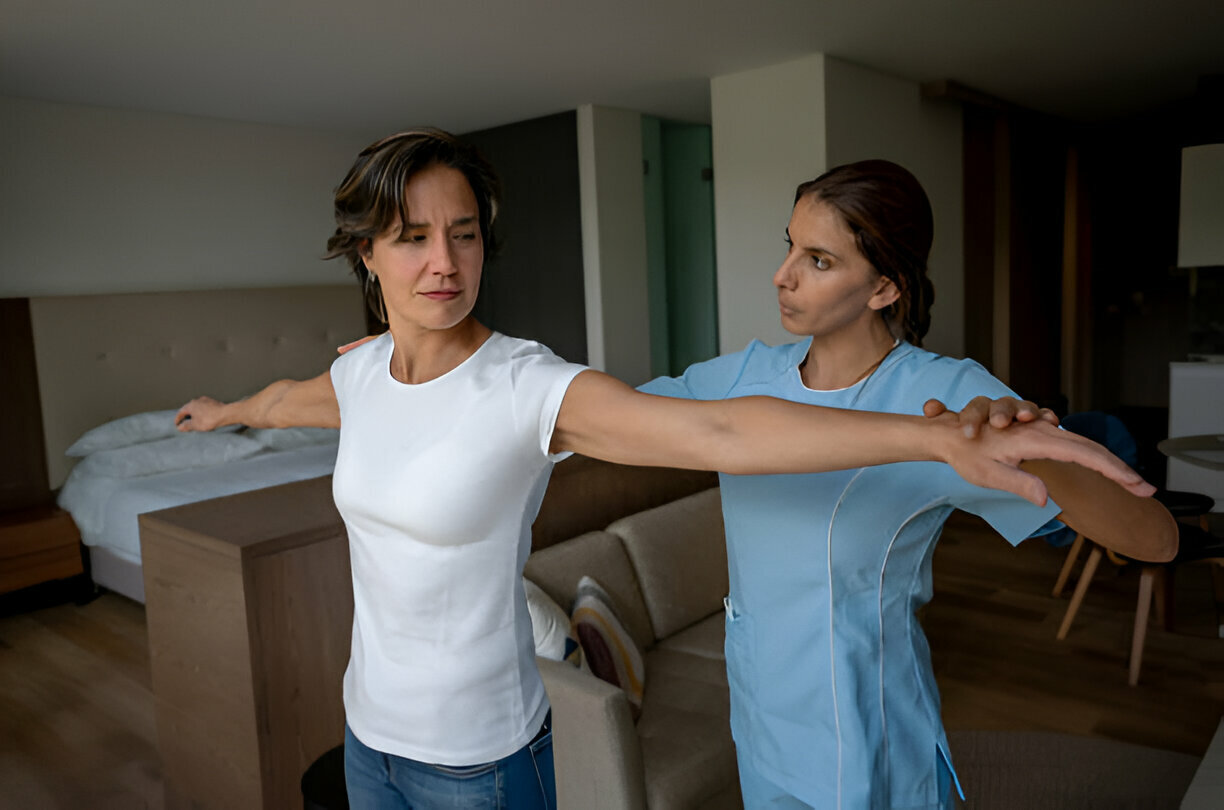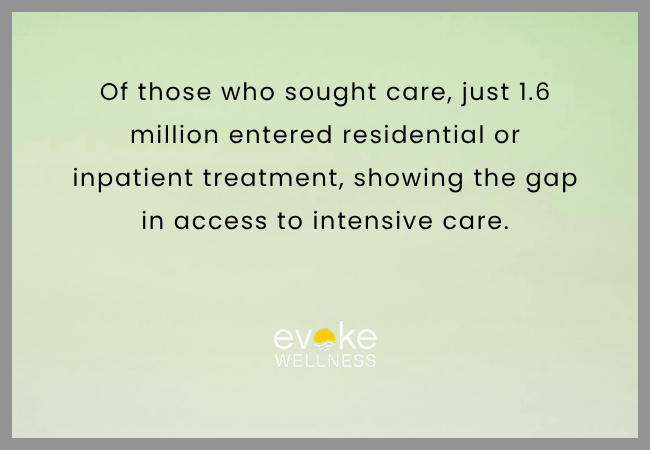For many individuals battling substance use, the decision to seek help is one of the most important steps toward reclaiming a healthy, fulfilling life. Recovery isn’t just about quitting drugs or alcohol; it’s about addressing the root causes of addiction and rebuilding the tools necessary for lasting wellness. Residential rehab, also called inpatient treatment, plays a critical role in that process.
Unlike outpatient services where clients return home each day, residential rehab provides a stable, live-in environment. It eliminates the external triggers and distractions that can interfere with healing. At Evoke Wellness at Cohasset, we recognize that for many, healing requires a comprehensive and compassionate approach—one that considers not just the addiction itself but the emotional and psychological factors beneath it.
What Residential Rehab Involves
Residential rehab typically starts with a full intake assessment. This evaluation explores a client’s medical history, substance use background, co-occurring disorders, and personal goals. This is crucial for building a tailored treatment plan—one that reflects the complexity and uniqueness of each person’s experience.
Following assessment, clients often begin their treatment journey with a supervised detox. This stage clears substances from the body and helps stabilize any acute symptoms. After detox, the therapeutic phase begins in full.
Daily life in residential rehab is highly structured. Clients attend individual therapy, group sessions, and experiential therapies. These are combined with routine activities such as meals, exercise, rest, and social time. The consistency fosters a sense of safety, which is essential for personal growth and transformation.
The Importance of a Safe Detox Process
Substance withdrawal can be physically and emotionally taxing, even dangerous, depending on the severity of use. Before clients can fully engage in therapy, the body must be stabilized.
At Evoke Wellness at Cohasset, we offer comprehensive detox services to support safe withdrawal. Our staff monitors symptoms and provides both medical and emotional support during this challenging phase. For many clients, detox is their first sober experience in years. Helping them navigate it with dignity and comfort lays the groundwork for their long-term success.
Following detox, clients transition into intensive therapeutic work with a clear mind and a stronger physical foundation.
Mental Health and Recovery
Mental health plays a significant role in addiction. For many people, substance use is a way to cope with depression, anxiety, trauma, or other underlying psychological conditions. If those issues remain untreated, recovery is rarely sustainable.
At our Mental Health Treatment Center in Massachusetts, clients receive dual-diagnosis care that treats both their mental health and substance use disorders simultaneously. This integrated approach helps people gain insight into how their thoughts, emotions, and behaviors are interconnected, and how to begin changing them for the better.
We use evidence-based therapies and holistic practices to provide full-spectrum healing, offering clients the opportunity to recover emotionally—not just physically.
Therapeutic Approaches in Residential Rehab
Therapy is the core of any successful residential program. Clients participate in daily sessions that explore the root causes of their addiction. This includes past trauma, family dynamics, limiting beliefs, and emotional regulation.
Our treatment model incorporates a range of modalities. These include individual therapy, group therapy, and family counseling. Each provides a different lens of support and insight. One of the most impactful tools we utilize is Cognitive-Behavioral Therapy in Massachusetts. CBT teaches clients to identify negative thought patterns and reframe them into healthier, more constructive beliefs. Over time, these cognitive shifts can significantly improve emotional control and decision-making.
Beyond clinical therapy, we incorporate wellness practices like meditation, physical activity, art therapy, and journaling. Healing is a whole-person process—mental, emotional, physical, and spiritual.
Structure That Promotes Growth
Addiction often brings chaos to a person’s life—irregular sleep, missed obligations, unpredictable moods. Structure is one of the first things that recovery restores. Residential rehab provides a consistent, intentional schedule that fosters a sense of accountability and self-discipline.
Clients follow a daily routine that includes meals, therapy sessions, recovery meetings, personal time, and evening reflections. The predictability of the schedule helps regulate mood and energy, while reinforcing productive habits.
This consistent framework builds the foundation for a more balanced, organized life after treatment.
Peer Support and Community
One of the most powerful elements of residential rehab is the sense of community. Recovery can feel isolating, but in rehab, clients live alongside others who understand their struggles firsthand. Peer support becomes a vital part of the healing process.
Group therapy sessions and shared activities help foster this connection. Clients give and receive encouragement, hold each other accountable, and often form lasting friendships. This social reinforcement strengthens recovery, especially for those who previously felt alone in their experiences.
The community aspect of residential treatment teaches clients how to communicate openly, trust others, and build healthy relationships—skills that are invaluable beyond rehab.
Personalized Care and Flexibility
No two individuals are the same, and neither are their paths to recovery. Effective residential rehab recognizes that one-size-fits-all approaches don’t work.
For those seeking discretion, comfort, and tranquility, our Luxury Rehab Center Massachusetts offers an elevated experience. These accommodations combine privacy and upscale amenities with clinical excellence, allowing clients to heal in a serene and supportive setting.
Others may require higher levels of clinical care, especially those with complex medical histories or severe addiction. Our programs adjust treatment intensity based on each person’s specific needs, ensuring that care is always aligned with progress and readiness.
Preparing for Life After Rehab
Recovery doesn’t end when residential rehab is over. The transition back into everyday life is delicate, and without proper planning, the risk of relapse increases.
From the start of treatment, we work with clients to create aftercare plans tailored to their goals and circumstances. This may include step-down programs, therapy appointments, sober living environments, vocational support, or continued medication management.
Clients also learn practical life skills—budgeting, job readiness, time management, communication—that prepare them for success outside the treatment environment. Residential rehab plants the seed of recovery. Aftercare ensures it grows.
Why Choose Evoke Wellness?
At Evoke Wellness at Cohasset, we are more than a treatment provider—we are a dedicated team committed to restoring lives. As a trusted Residential Treatment Center in Massachusetts, we combine clinical excellence with compassionate care to support each client’s healing journey. From detox through aftercare, our programs are designed to meet you where you are and guide you where you want to go.
Conclusion
Residential rehab offers a transformative experience for individuals ready to break free from addiction and embrace a new way of living. It provides safety, structure, and expert guidance—all necessary elements for deep, lasting recovery.
At Evoke Wellness at Cohasset, we understand the courage it takes to ask for help. Whether you’re just beginning your journey or looking for a fresh start, we’re here to walk with you every step of the way. As part of our commitment to excellence, we also provide Drug and Alcohol Detox in Massachusetts to support the earliest stages of recovery with medical supervision and compassion. Call us today at 866-931-6429 and begin the path toward lasting wellness.
Frequently Asked Questions (FAQs)
What is residential rehab?
Residential rehab is a structured, live-in treatment program where individuals receive 24/7 care for substance use and mental health challenges in a safe environment.
How long does residential rehab usually last?
The length of stay varies depending on individual needs, but most residential programs last between 30 to 90 days, with options for extended care when necessary.
Who is a good candidate for residential rehab?
People with moderate to severe substance use disorders, co-occurring mental health issues, or those who’ve relapsed in outpatient care often benefit most from residential rehab.
What therapies are used in residential treatment?
Therapies often include individual counseling, group therapy, family therapy, and evidence-based approaches like cognitive-behavioral therapy (CBT) and trauma-informed care.
Will I have medical supervision during rehab?
Yes, reputable residential rehab programs offer 24/7 medical and clinical supervision, especially during detox and early recovery stages to ensure safety and comfort.





